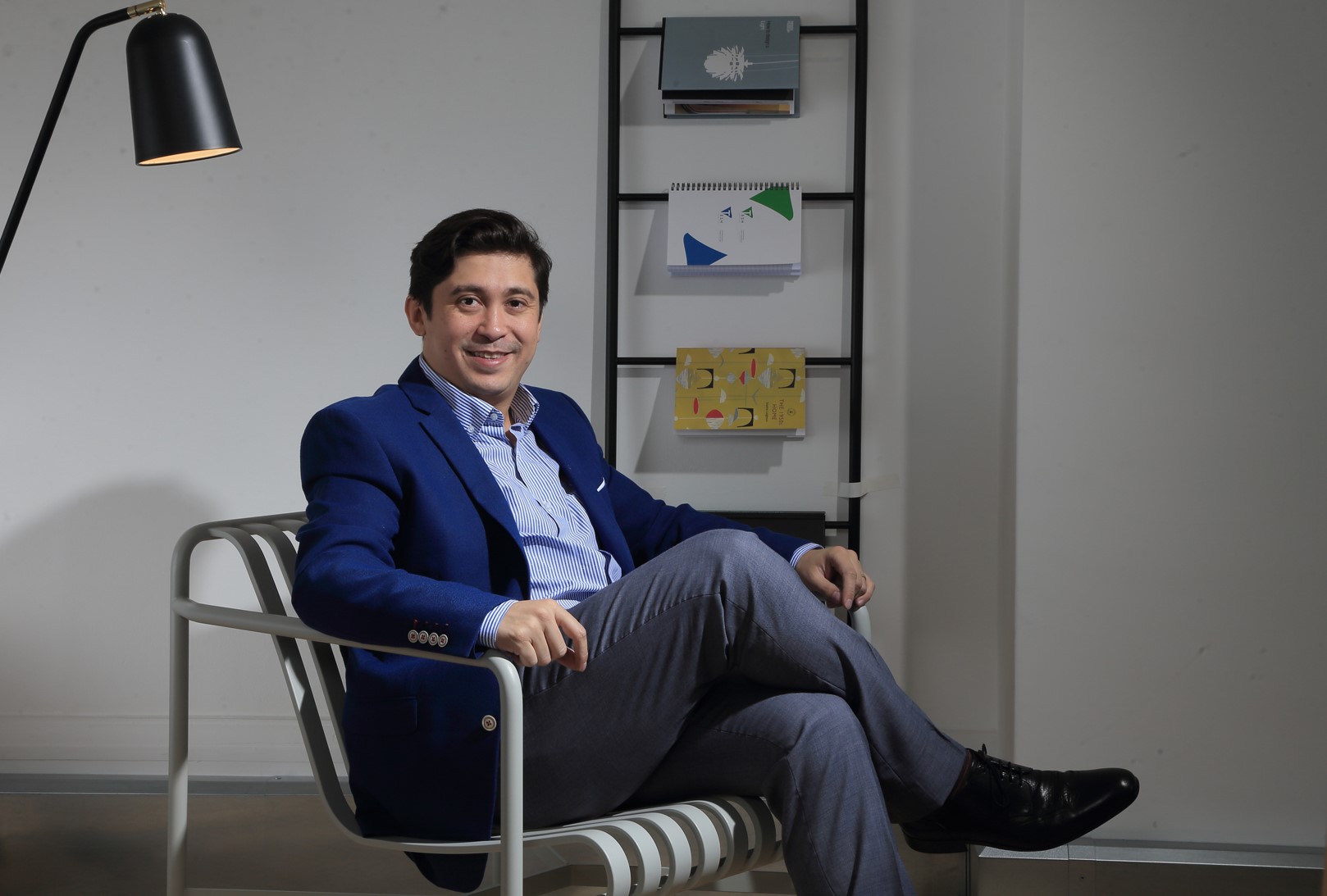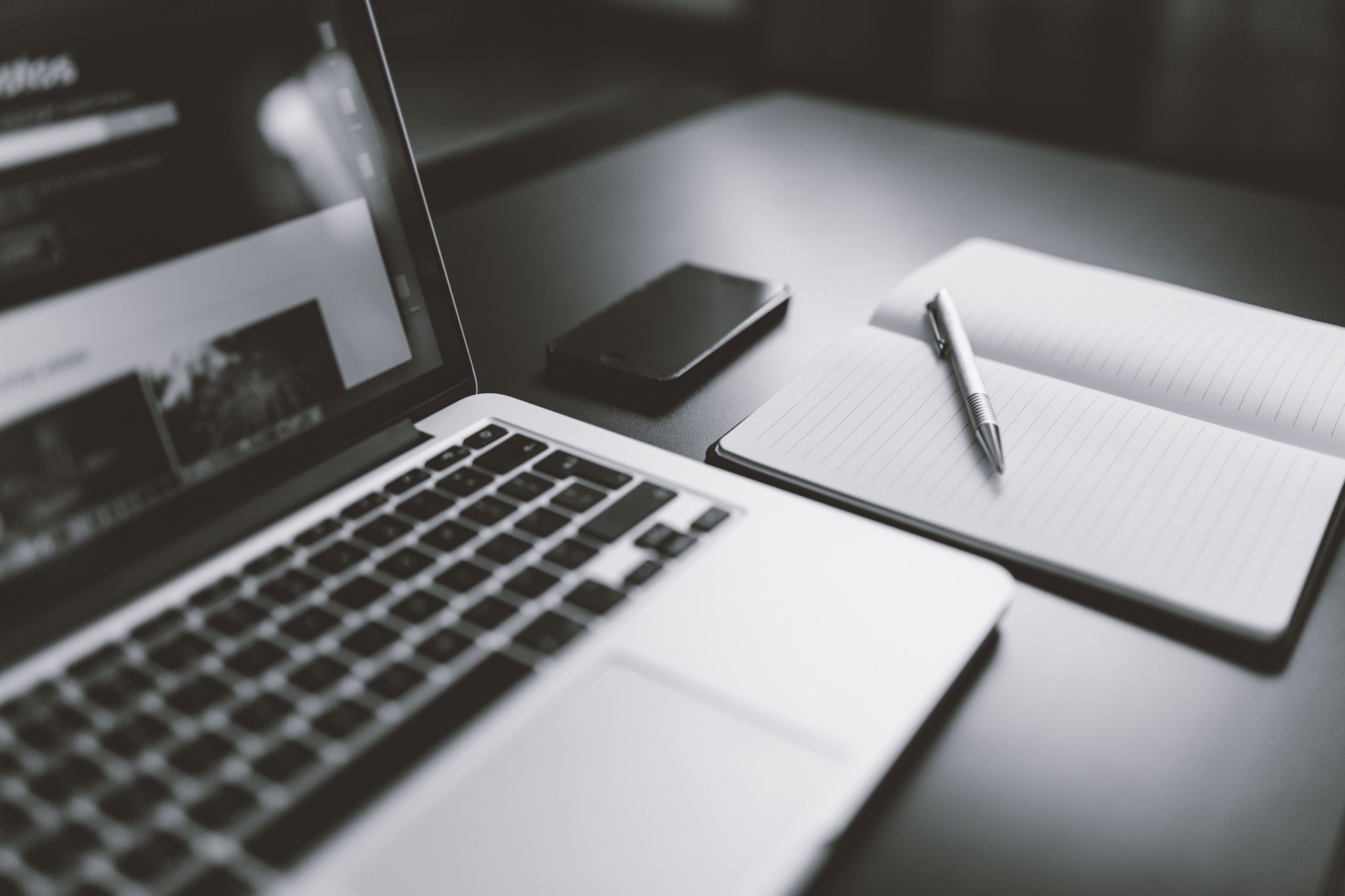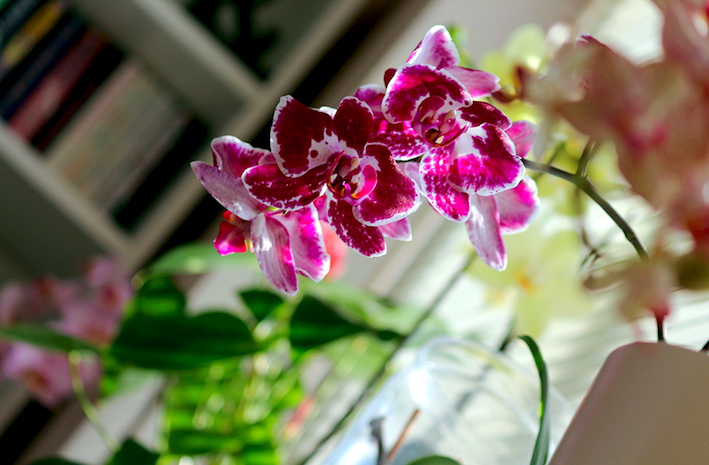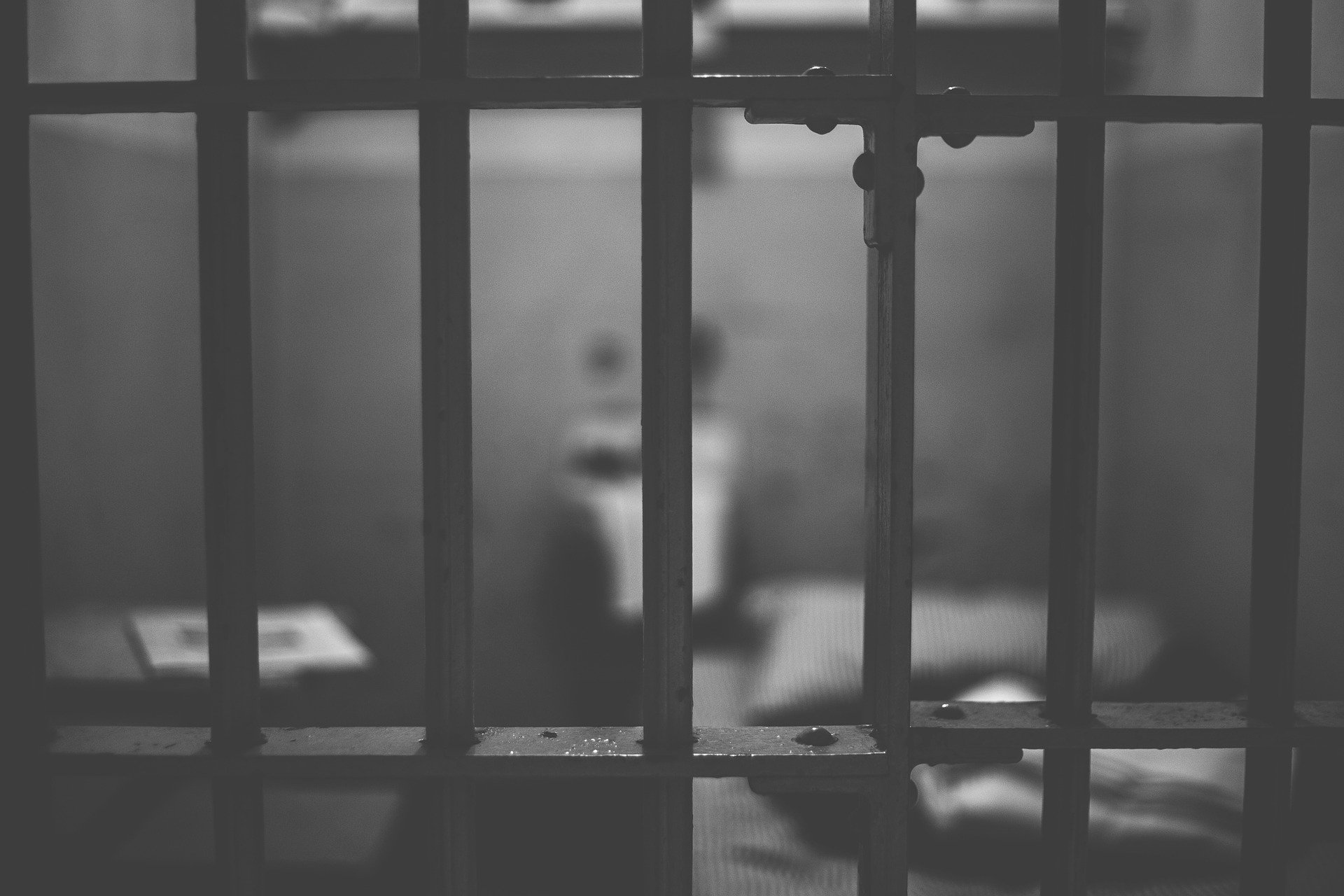As the new academic year commences soon on 5 October, this blog summarises the current public health advice and information to remind students what they need to know before the university term starts.
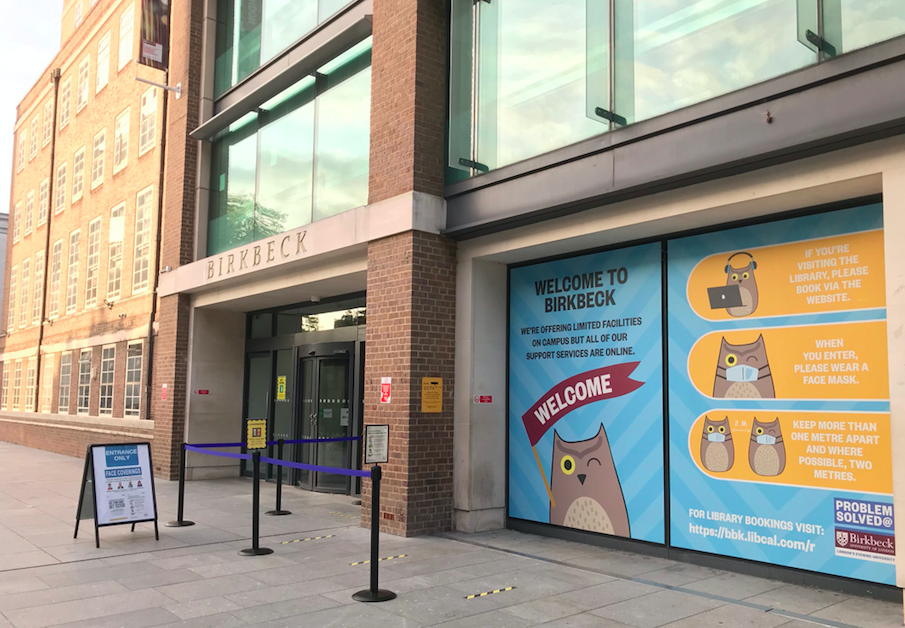
Birkbeck’s main building, Torrington Square
Protect yourself, your university and the wider community – remember ‘Hands. Face. Space’.
- Wash your hands regularly
-
The College has adopted a 1M+ approach to social distancing in circulation areas across the estate. This means that people should maintain a two-metre distance, as far as is reasonably possible whilst in buildings but, with the mitigation of face coverings, it is possible for people to be in closer proximity, for example when passing each other in corridors. However, when people are in rooms for prolonged periods, such as in a classroom, the Library or shared office space, then a 2M social distance should be maintained. This will be supported by laying out furniture, such as classroom desks or library study spaces with two metre spacing
- We require that everyone wears a face covering whilst inside Birkbeck buildings
- Get a test and self-isolate if you develop symptoms
- Use the NHS Test and Trace app
Whether you’re a new or returning student you’ll no doubt have lots of questions or concerns about how the COVID-19 pandemic will impact your student life. Whether you are already based in London or moving to the city, you’ll need to know what actions you should take – to keep yourself safe but also fellow students, university staff and the local community. This blog summarises the important public health advice and information to remind you of what you need to know before the university term starts.
Public health basics
You’ve probably been looking forward to starting or returning to university, your friends but it’s essential to keep the public health basics front of mind and always remember ‘Hands. Face. Space’.
Your ‘household’ will consist of your family or flatmates that you share your home with or if you are living in university halls your halls of residence will let you know what makes up your household.
Follow the student guidance and booking process for visiting the Birkbeck library. We will have very limited on-campus classes and events in the autumn term, but this is under constant review and we will update you as plans change.
The College has adopted a 1M+ approach to social distancing in circulation areas across the estate. This means that people should maintain a two-metre distance, as far as is reasonably possible whilst in buildings but, with the mitigation of face coverings, it is possible for people to be in closer proximity, for example when passing each other in corridors. However, when people are in rooms for prolonged periods, such as in a classroom, the Library or shared office space, then a 2M social distance should be maintained. This will be supported by laying out furniture, such as classroom desks or library study spaces with two metre spacing. We require that everyone wears a face covering whilst inside Birkbeck buildings.
To stay safe while travelling try to avoid car sharing and using public transport at peak times. Walk or cycle when it’s possible and safe to do so. These basics will help protect you, university life and local residents, especially those that are more vulnerable.
If you’re a student in the clinically extremely vulnerable group, having previously been shielding, and you have a particular health concern you should seek medical advice.
Moving to your university home
Be sure to follow the government’s latest advice on coronavirus. London is not currently listed as an area with additional restrictions, but if you’re coming from Wales, Scotland or Northern Ireland, remember that the rules and restrictions are different to those in England. It’s also a good idea to get up to speed on the overall advice on staying safe outside your home and find out your new local council so you can keep up–to–date on local guidance.
If you’re an international student coming to the UK from abroad, make sure you provide your journey and contact details before you travel to the UK and you know whether you need to self-isolate for 14 days when you arrive, and read the guidance on entering the UK safely.
International travel restrictions and local restrictions can change quickly and without much warning so be sure to keep an eye on the latest guidance while making your travel plans.
What to do if you need to self-isolate
If you test positive for coronavirus while at university, the rules on self-isolation remain the same. You must self-isolate for 10 days and follow NHS guidance. Your other close contacts that will be informed by NHS Test and Trace if they should self-isolate.
If you’re living in university accommodation where someone in your ‘household’ (as set out by the accommodation management team) has symptoms of coronavirus or tests positive you must let the management team know.
Wherever you live, you should self-report on My Birkbeck so the university can offer any extra support you might need for your course.
NHS Test and Trace
Make sure the university has your latest personal details to ensure the NHS Test and Trace can get in touch if they need to – you can update your personal details on you’re MyBirkbeck profile.
If you or anyone you’ve had close contact with test positive for coronavirus, you’ll be contacted by NHS Test and Trace and asked to self-isolate. If you are contacted, you will be asked to provide them with information they’ll need to help stop the spread of the virus.
The NHS Test and Trace app is part of the national effort to get us back doing the things we love and every person who downloads the app will be helping in the fight against coronavirus. The app will help you to report symptoms, order a coronavirus test, check in to venues by scanning a QR code and help the NHS trace those who may have coronavirus. The app will do all this while protecting your identity and data security. The app will be available shortly so do the right thing and download it and encourage your student household and friends to do likewise.
Got symptoms – get a test
Make sure you are clear about the symptoms of coronavirus and when you should get a test. If you have any of the following symptoms you should get a test:
- a high temperature
- a new, continuous cough
- a loss of, or change to, your sense of smell or taste
You can book a test on line at GOV.UK at https://www.gov.uk/get-coronavirus-test or by phoning NHS 119.
If you have a confirmed case of COVID-19, you can self-report on your MyBirkbeck profile.
Be mindful of your mental health
Recent months haven’t been fun or easy for anyone – not least of all students. The new online resource at Student Space has a variety of useful mental health and wellbeing materials that can support you. Public Health England has also published general guidance on mental health and wellbeing during COVID-19.
Your role is crucial
By following the guidance on washing your hands; keeping your distance; not socialising with more than 6 people; wearing a face covering; using the NHS Test and Trace app, self-isolating and getting a test if you have symptoms you are helping to save lives. Respecting the rules will keep you, your friends and family healthy, and your university town a safe and enjoyable place to live.
We will continue to post updated on Birkbeck’s coronavirus information page, and in the weekly email to students.






